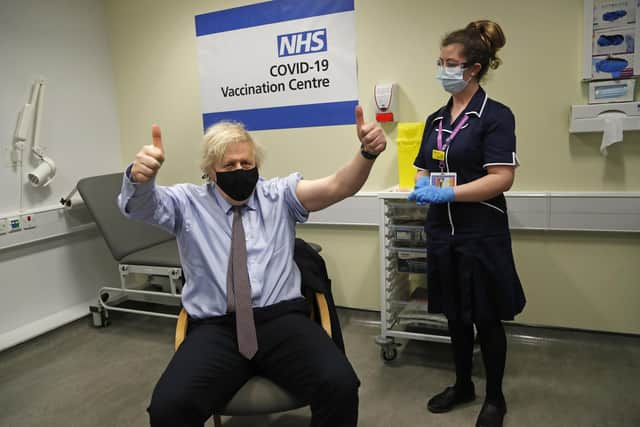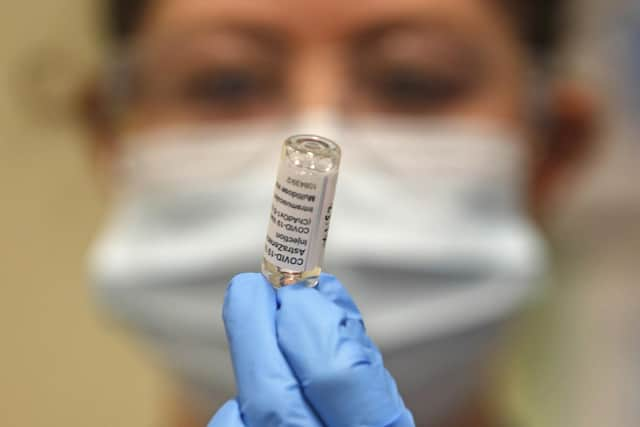Covid vaccines: EU leaders to hold virtual talks as UK row over AstraZeneca coronavirus jab supplies continues
and live on Freeview channel 276
The discussions come as the UK and EU find themselves in a dispute over Covid-19 vaccine supplies, with Prime Minister Boris Johnson warning a trade war over jabs would result in “considerable” and “long-term” damage.
A joint statement said the two sides were seeking a “win-win” deal to increase supplies across the UK and EU, as the European Commission set out a tougher regime to stem supplies of jabs to nations faring better in the pandemic.
Advertisement
Hide AdAdvertisement
Hide AdThe bloc’s states are facing a third wave of cases, forcing the Commision to admit the continent is a Covid-19 “hotspot” on Wednesday, and suggest it may not approve exports to nations with more advanced vaccine rollouts or where there is a better “epidemiological situation”.


Across the EU, just over 11 per cent of adults have received a first dose of a Covid-19 vaccine but in the UK the figure is more than 54 per cent. The EU did not rule out Pfizer jabs being restricted to the UK if sufficient vaccines are not shipped to the bloc.
‘Not seeking to punish any country’
The Union is embroiled in a row with AstraZeneca and the UK over supplies of the Oxford jab, and member states have been told to consider “reciprocity” when authorising exports, as the commission struck out against an alleged lack of British shipments to the bloc.
Under the new mechanisms, member states should consider two key factors before authorising vaccine exports. First they will consider whether the destination country restricts its own exports of vaccines, or raw materials.


Advertisement
Hide AdAdvertisement
Hide AdSecond, they will consider whether the “conditions prevailing” in the destination country are “better or worse than the EU’s”.
European Commission executive vice-president Valdis Dombrovskis said the new export authorisation mechanisms were not targeted at any one country, but said 10 million jabs had moved from the EU to the UK since it introduced checks and that “zero doses” had returned from British plants.
Dombrovskis has argued controls are necessary because while the EU is one of the “global hotspots of the pandemic”, it is also the “largest exporter of vaccines”.
Denying the bloc was implementing an “export ban”, EU health commissioner Stella Kyriakides said: “We’re dealing with a pandemic and this is not seeking to punish any countries.”
‘The damage can be considerable’
Advertisement
Hide AdAdvertisement
Hide AdIn the UK, Boris Johnson told MPs that blockades of either vaccines or of ingredients for vaccines were “not sensible”, and that “the long-term damage done by blockades can be very considerable.”
“I would just gently point out to anybody considering a blockade or an interruption of supply chains that companies may look at such actions and draw conclusions about whether or not it is sensible to make future investments in countries where arbitrary blockades are imposed.”
The UK and the commission joint statement acknowledged the third wave of cases made cooperation more important – but no resolution had yet been reached.
The talks come as it was also revealed that India has placed a temporary hold on all exports of the AstraZeneca vaccine due to domestic demand caused by rising cases within the country.
Advertisement
Hide AdAdvertisement
Hide AdOfficials have described the move as a “temporary squeeze” which is expected to affect supplies until the end of April, according to the BBC, with some 190 countries under the Covax scheme likely to be affected.